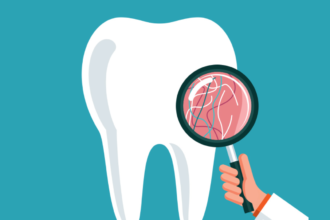Have you ever wondered what makes hemp seed oil different from CBD oil? Hemp seed oil and CBD oil are generated from different portions of the hemp plant, yet both oils offer several amazing advantages. Hemp oil is well known for its nutritional advantages and skin-hydrating properties, but CBD oil is useful for relieving pain, anxiety, and even encouraging deeper sleep. The stalks, leaves, and flowers of the hemp plant are used in the manufacturing of CBD oil.
In contrast, hemp seed oil is made from Cannabis sativa plant seeds. Although the seeds don’t contain CBD, they nevertheless have a high concentration of vitamins, minerals, and other bioactive chemicals that may still be beneficial to health. A greater understanding of hemp seed oil and CBD oil may make it easier for consumers and doctors to choose the product that is the safest and most effective for their needs. Keep reading to find out more about the variations between hemp seed oil and CBD oil.
Where Does Hemp Seed Oil Come From?
The seeds of hemp plants are what produce hemp seed oil. Hemp seed oil is commonly produced by cold-pressing Cannabis sativa seeds and then purifying the oil. The procedure often involves washing the seeds before pressing them to produce oil. Hemp seed oil doesn’t have a cannabinoid profile since it’s produced from seeds. It has no terpenes, no cannabinoids, and, most importantly, no THC or CBD whatsoever. Hemp seed oil serves mostly as a food oil or nutritional supplement. Hemp seed oil has a higher proportion of polyunsaturated fat and less saturated fat than other food-based oils. Hemp seed oil may be used in more ways than just cooking, however.
How is CBD oil produced?
The mature hemp plants’ leaves, stems, flowers, and stalks are where CBD is extracted by companies that create CBD oil; not their seeds. Additionally, a number of extraction techniques, including solvents, carbon dioxide, dry ice, and olive oil, are utilized to extract CBD from hemp-based materials.
Once the CBD has been extracted, producers must mix the extract with a carrier oil to make it safe for consumption. Due to its advantages over other edible oils, MCT oil is used as a carrier by the majority of credible CBD oil producers.
How CBD is extracted from hemp material has a significant impact on the CBD oil’s quality. Additionally, since CBD is extracted from the whole hemp plant, it often includes terpenes, cannabinoids, and other essential oils that together provide the entourage effect.
The Benefits of Hemp Seed Oil
The benefits of hemp oil when used topically include:
- Deep moisturizing for very dry skin.
- Moisturizers that don’t clog pores.
- Softened skin for a complexion that is more supple.
- An increase in hair growth and a decrease in hair loss
- Skin elasticity was increased; nails were strengthened.
Hemp seed oil is:
- Packed with vitamins and minerals that have anti-inflammatory benefits when taken orally.
- Rich in antioxidants and minerals that fight aging and strengthen immunity.
- Rich in omega-3 and omega-6 to support eye and heart health.
CBD Oil Advantages
The most frequent way to use CBD oil for health benefits is orally. These include:
- Analgesic effects (also known as extraordinary pain-relieving skills)
- Relieves joint and muscular discomfort
- Decreases the signs and symptoms of autoimmune conditions like psoriasis by having anti-inflammatory properties.
Additionally, there are advantages to using CBD oil topically, including:
- Relieving stress and tension in the muscles
- Post-exercise recuperation
- Calming redness from rosacea, sunburns, and insect bites
What Distinguishes CBD Oil from Hemp Oil?
Because hemp oil doesn’t contain any CBD, CBD oil and hemp oil are not interchangeable terms. Additionally, CBD oil is created using CBD chemicals from the stalks, leaves, and flowers of hemp plants, while hemp oil is generated from cold-pressed hemp seeds. But when you contrast CBD oil with hemp oil, you’ll discover that each offers a particular set of advantages.
Because the names are sometimes used interchangeably on product labels, there is a great deal of misunderstanding about the relationship between hemp oil and CBD oil. In many circumstances, CBD oil is referred to as “hemp oil,” particularly if it is being marketed in a place that has a negative attitude towards CBD.
However, hemp seed oil is often commonly referred to as “hemp oil.” Furthermore, hemp seed oil is a completely distinct product from CBD oil. Despite the fact that they both originate from Cannabis sativa plants and have advantageous effects, they are made differently and serve distinct purposes.
You can be confident that you’re selecting the best product for you and your requirements by learning more about the distinctions between hemp oil and CBD oil. No matter how many companies erroneously or purposely use “CBD oil” and “hemp oil” interchangeably to market cannabis-infused goods, these two ingredients are not the same.
Why do vendors promote the words as being the same?
The primary factor is that hemp seed oil and CBD oil both originate from the cannabis plant’s same family, which is all that matters to some producers and consumers. And without a clear understanding of the distinctions between the two, items are often given the same labels. Companies are aware of how much more money people are prepared to spend on CBD oil, which is another factor. Due to its complex extraction procedure, CBD is far more expensive to extract than hemp seed oil. It is not difficult for a business to extract hemp seed oil for less money, incorporate it into a product, and brand it to give customers the impression that they are purchasing a CBD-infused good even if there is none at all.
In contrast, some companies may advertise their CBD products as hemp oil in an effort to get around local and national laws. Many of these regulations severely restrict how businesses may promote CBD oil. Checking the ingredients list is the best way to know what you’re purchasing. Typically, cannabidiol, full spectrum hemp, wide spectrum hemp, or hemp extracts are listed as the principal components of CBD oils. And hemp seed oil often lists Cannabis sativa seed oil as its only ingredient, without extracts.
The Uses of Hemp Oil
Dermatologists have discovered that hemp oil’s fatty acids may make the skin look better. Hemp oil also strengthens the skin, increasing its resistance to infections and other skin problems. Because hemp oil has a lot of omega-3 fatty acids, which are often put into supplements to help decrease blood pressure, some individuals use it as a natural option for hypertension. However, its advantages in that regard remain untested.
Is There CBD in Hemp Oil?
Hemp oil normally does not contain any CBD content. It is made from hemp seeds, which are devoid of CBD and other cannabinoids by nature. However, CBD oil also sometimes includes additional cannabinoid chemicals in addition to CBD. Check the label to discover whether the product is manufactured from hemp seeds or hemp extracts, since “hemp oil” is frequently used as an alternative name for CBD oil.
Financial value
Compared to hemp seed oil, CBD oil is far more costly to create. A product will probably not be inexpensive if it says it is created with quality CBD oil. And if it is, you may wish to confirm its validity once again. Unfortunately, there may be some hemp-based goods that are created using hemp seed oil. Even if they don’t contain CBD, they are still, technically, A product is not always a CBD product just because it includes a hemp leaf on the label or logo. Never judge a book by its cover, even though pricing might sometimes be a good indicator.
CBD Lip Balms
You may wish to try CBD lip balm if your lips are constantly dry and itchy. CBD is utilized for its calming and anti-inflammatory qualities, which may provide comfort. Make sure the ingredients in the product you choose meet your demands. Chemicals in inexpensive creams may aggravate your skin even worse.
One should make sure the business from which they get their CBD lip balm employs high-quality plants from reliable agricultural practices. People may also want to think about the following things:
- Dosage: Those who are unfamiliar with CBD products may choose to start with a lower dosage and then gradually increase it as needed.
- Third-party testing: Reputable CBD producers should be upfront in their labeling and conduct third-party testing to demonstrate the accuracy of their product labels. Results from independent laboratories are often posted on a company’s website.
- Price: Different CBD products have different prices, so reputation and budget are crucial factors.
- Substances: Before using a product, a person should make sure that the CBD and other ingredients don’t conflict with any other prescriptions they are already taking. It is a good idea to speak with a doctor before taking CBD products.
- Ethical and responsible procedures: Businesses must show that their agricultural, extraction, and testing practices are environmentally friendly, and ethical. To find more content similar to this, go to Brands Reviews https://www.brandsreviews.com.














